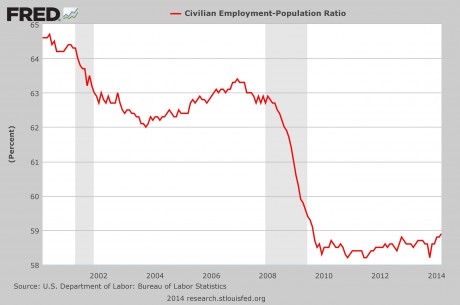05/03/2014
Money was being wired from bank accounts in Colombia to bank accounts in Colorado for purchase of marijuana grow facility
 DENVER – Hector Diaz, age 49, David Jeffrey Furtado, age 48, Luis Fernand Uribe, age 28, and Gerardo Uribe, age 33, were named in a just unsealed superseding indictment, returned by a federal grand jury in Denver on April 22, 2014, federal law enforcement agencies announced.
DENVER – Hector Diaz, age 49, David Jeffrey Furtado, age 48, Luis Fernand Uribe, age 28, and Gerardo Uribe, age 33, were named in a just unsealed superseding indictment, returned by a federal grand jury in Denver on April 22, 2014, federal law enforcement agencies announced.
The superseding indictment alleges violations of federal firearms law and money laundering related to marijuana laws. Diaz, who was previously charged, was sent a summons to appear in court Wednesday, April 30, 2014. Furtado and Luis Uribe were arrested on Friday, April 25, 2014. Furtado and Luis Uribe made their initial appearances this afternoon before U.S. Magistrate Judge Boyd N. Boland, where they were advised of their rights and the charges pending against them. Gerardo Uribe has been charged but is not in custody. He is currently considered a fugitive from justice. Furtado, Luis Uribe, and Hector Diaz were scheduled to be back in court on Wednesday, April 30, 2014.
The superseding indictment includes the original charge that Hector Diaz illegally possessed a firearm. The superseding indictment further alleges that Diaz committed visa fraud by making a false statement regarding the purpose of his visit to the United States.
The superseding indictment alleges that all four defendants conspired with each other and others known and unknown to the grand jury, to commit offenses against the United States. The manner and means of their conspiracy include:
 The superseding indictment also alleges that Diaz, Furtado and Gerardo Uribe did transfer $424,000 using wire transfers from the Banco Bilbao Vizcaya Argenteria (BBVA) in the Republic of Colombia to the Colorado West Metal, LLC Wells Fargo account with the intent to cultivate, manufacture and distribute marijuana. Also, Furtado did two wire transfers, one for $100,000 and a second for $20,000 from the Banco de Occidente, in the Republic of Colombia, to his attorney trust account with Wells Fargo in Colorado, with the intent to promote the cultivation, manufacture and distribution of marijuana.
The superseding indictment also alleges that Diaz, Furtado and Gerardo Uribe did transfer $424,000 using wire transfers from the Banco Bilbao Vizcaya Argenteria (BBVA) in the Republic of Colombia to the Colorado West Metal, LLC Wells Fargo account with the intent to cultivate, manufacture and distribute marijuana. Also, Furtado did two wire transfers, one for $100,000 and a second for $20,000 from the Banco de Occidente, in the Republic of Colombia, to his attorney trust account with Wells Fargo in Colorado, with the intent to promote the cultivation, manufacture and distribution of marijuana.
Finally, Furtado, Luis Uribe and Gerardo Uribe did knowingly engage in money laundering by and through a financial institution affecting interstate and foreign commerce, in criminally derived property greater than $10,000; that is, the attempted deposit of $449,980 in U.S. Currency (cash) into a Wells Fargo bank account, with such property having been derived from a specified unlawful activity, namely the cultivation, manufacture and distribution of marijuana.
The superseding indictment includes an asset forfeiture allegation, which includes the firearms possessed by Diaz, and the money derived from the unlawful activity, namely the cultivation, manufacture and distribution of marijuana, a Schedule I controlled substance.
The investigation and charges closely follow the guidance provided by the Department of Justice in August 2013. More than one of the enforcement priorities outlined in the Department guidance are implicated in this ongoing criminal matter.
In the superseding indictment, Hector Diaz is named in counts one, two, three and four. David Furtado is named in counts three, four, five, six and seven. Luis Uribe is named in counts three and seven. Gerardo Uribe is named in counts three, four and seven.
Count one is possession of a firearm by a prohibited possessor. If convicted, the defendant faces not more than 10 years imprisonment, and up to a $250,000 fine. Count two is false statements with respect to a material fact. If convicted, the defendant faces not more than 20 years imprisonment, and up to a $250,000 fine. Count three is conspiracy to commit money laundering. If convicted, the defendants face not more than 20 years imprisonment, and a $500,000 fine (or twice the value of the property involved in the transaction, whichever is greater). Count four is money laundering and aiding and abetting the same. If convicted, the defendants face not more than 20 years imprisonment, and a $500,000 fine (or twice the value of the property involved in the transaction, whichever is greater). Counts five and six are money laundering and aiding and abetting the same. If convicted, the defendants face not more than 20 years imprisonment, and a $500,000 fine (or twice the value of the property involved in the transaction, whichever is greater). Count seven is engaging in monetary transactions in property derived from specified unlawful activity. If convicted, the defendants face not more than 10 years in federal prison, and up to a $250,000 fine.
This case is being investigated by the Drug Enforcement Administration (DEA), the Internal Revenue Service – Criminal Investigation (IRS CI), and the U.S. Department of State, Diplomatic Security Services (DSS). This investigation is ongoing, and no further information outside of the superseding indictment can or will be provided.
The defendants are being prosecuted by Assistant U.S. Attorneys M.J. Menendez and Bradley Giles. Assistant U.S. Attorney Tonya Andrews is handling the asset forfeiture aspect of this case.
Money was being wired from bank accounts in Colombia to bank accounts in Colorado for purchase of marijuana grow facility
 DENVER – Hector Diaz, age 49, David Jeffrey Furtado, age 48, Luis Fernand Uribe, age 28, and Gerardo Uribe, age 33, were named in a just unsealed superseding indictment, returned by a federal grand jury in Denver on April 22, 2014, federal law enforcement agencies announced.
DENVER – Hector Diaz, age 49, David Jeffrey Furtado, age 48, Luis Fernand Uribe, age 28, and Gerardo Uribe, age 33, were named in a just unsealed superseding indictment, returned by a federal grand jury in Denver on April 22, 2014, federal law enforcement agencies announced.The superseding indictment alleges violations of federal firearms law and money laundering related to marijuana laws. Diaz, who was previously charged, was sent a summons to appear in court Wednesday, April 30, 2014. Furtado and Luis Uribe were arrested on Friday, April 25, 2014. Furtado and Luis Uribe made their initial appearances this afternoon before U.S. Magistrate Judge Boyd N. Boland, where they were advised of their rights and the charges pending against them. Gerardo Uribe has been charged but is not in custody. He is currently considered a fugitive from justice. Furtado, Luis Uribe, and Hector Diaz were scheduled to be back in court on Wednesday, April 30, 2014.
The superseding indictment includes the original charge that Hector Diaz illegally possessed a firearm. The superseding indictment further alleges that Diaz committed visa fraud by making a false statement regarding the purpose of his visit to the United States.
The superseding indictment alleges that all four defendants conspired with each other and others known and unknown to the grand jury, to commit offenses against the United States. The manner and means of their conspiracy include:
- Affect the international transfer of funds from the Republic of Colombia into the United States to facilitate the purchase of real property, with existing physical structures, located at 5200 East Smith Road, in Denver, Colorado.
- The defendants intended to permit the use of the Smith Road property to cultivate, manufacture, and/or distribute marijuana.
- In 2013, Gerardo Uribe filed documents with the Colorado Secretary of State to incorporate a company known as Colorado West Metal, LLC. Attorney David Furtado was the registered agent. Hector Diaz was listed as the person responsible for forming the corporation.
- Furtado opened a bank account at Wells Fargo in the name of Colorado West Metal, LLC, and was the sole signor on that account.
- Furtado used his attorney trust account, held in the name of his law firm, to facilitate the purchase of the Smith Road property.
- It was part of the conspiracy for Furtado, Gerardo Uribe and Hector Diaz to communicate regarding a wire transfer associated with Colorado West Metal, which was later used to purchase the Smith Road property.
- On November 7, 2013, Furtado transferred $424,000 from the Colorado West Metal Wells Fargo account to a Colorado First Bank account, held in the name of Land Title Guarantee Company.
- The conspirators caused and/or agreed for Land Title Guarantee Company to transfer those same funds to Westerra Credit Union – the mortgagor for the Smith Road property.
- Between November 1, 2013 and November 4, 2013, Furtado made and caused to be made two separate wire transfers in the amount of $200,000 each from his attorney trust account into the Colorado First Bank account in the name of Land Title Guarantee to facilitate the purchase of the Smith Road property.
- Members of the conspiracy deposited, and attempted to deposit into financial institutions, and/or converted to cashier’s checks and/or bulk U.S. currency (cash) to facilitate the purchase of the Smith Road property. These bulk currency amounts included proceeds from the cultivation and sale of marijuana.
- On October 31, 2013, Furtado met with Gerardo Uribe and obtained $449,980 in U.S. currency (cash). Those funds represented proceeds of specified unlawful activity, namely the cultivation and sale of marijuana, as derived through the operation of the “VIP Wellness Center,” operated by Gerardo Uribe, Luis Uribe and others.
 The superseding indictment also alleges that Diaz, Furtado and Gerardo Uribe did transfer $424,000 using wire transfers from the Banco Bilbao Vizcaya Argenteria (BBVA) in the Republic of Colombia to the Colorado West Metal, LLC Wells Fargo account with the intent to cultivate, manufacture and distribute marijuana. Also, Furtado did two wire transfers, one for $100,000 and a second for $20,000 from the Banco de Occidente, in the Republic of Colombia, to his attorney trust account with Wells Fargo in Colorado, with the intent to promote the cultivation, manufacture and distribution of marijuana.
The superseding indictment also alleges that Diaz, Furtado and Gerardo Uribe did transfer $424,000 using wire transfers from the Banco Bilbao Vizcaya Argenteria (BBVA) in the Republic of Colombia to the Colorado West Metal, LLC Wells Fargo account with the intent to cultivate, manufacture and distribute marijuana. Also, Furtado did two wire transfers, one for $100,000 and a second for $20,000 from the Banco de Occidente, in the Republic of Colombia, to his attorney trust account with Wells Fargo in Colorado, with the intent to promote the cultivation, manufacture and distribution of marijuana.Finally, Furtado, Luis Uribe and Gerardo Uribe did knowingly engage in money laundering by and through a financial institution affecting interstate and foreign commerce, in criminally derived property greater than $10,000; that is, the attempted deposit of $449,980 in U.S. Currency (cash) into a Wells Fargo bank account, with such property having been derived from a specified unlawful activity, namely the cultivation, manufacture and distribution of marijuana.
The superseding indictment includes an asset forfeiture allegation, which includes the firearms possessed by Diaz, and the money derived from the unlawful activity, namely the cultivation, manufacture and distribution of marijuana, a Schedule I controlled substance.
The investigation and charges closely follow the guidance provided by the Department of Justice in August 2013. More than one of the enforcement priorities outlined in the Department guidance are implicated in this ongoing criminal matter.
In the superseding indictment, Hector Diaz is named in counts one, two, three and four. David Furtado is named in counts three, four, five, six and seven. Luis Uribe is named in counts three and seven. Gerardo Uribe is named in counts three, four and seven.
Count one is possession of a firearm by a prohibited possessor. If convicted, the defendant faces not more than 10 years imprisonment, and up to a $250,000 fine. Count two is false statements with respect to a material fact. If convicted, the defendant faces not more than 20 years imprisonment, and up to a $250,000 fine. Count three is conspiracy to commit money laundering. If convicted, the defendants face not more than 20 years imprisonment, and a $500,000 fine (or twice the value of the property involved in the transaction, whichever is greater). Count four is money laundering and aiding and abetting the same. If convicted, the defendants face not more than 20 years imprisonment, and a $500,000 fine (or twice the value of the property involved in the transaction, whichever is greater). Counts five and six are money laundering and aiding and abetting the same. If convicted, the defendants face not more than 20 years imprisonment, and a $500,000 fine (or twice the value of the property involved in the transaction, whichever is greater). Count seven is engaging in monetary transactions in property derived from specified unlawful activity. If convicted, the defendants face not more than 10 years in federal prison, and up to a $250,000 fine.
This case is being investigated by the Drug Enforcement Administration (DEA), the Internal Revenue Service – Criminal Investigation (IRS CI), and the U.S. Department of State, Diplomatic Security Services (DSS). This investigation is ongoing, and no further information outside of the superseding indictment can or will be provided.
The defendants are being prosecuted by Assistant U.S. Attorneys M.J. Menendez and Bradley Giles. Assistant U.S. Attorney Tonya Andrews is handling the asset forfeiture aspect of this case.




 SAN JUAN – Eighteen percent of the drugs that pass through the Caribbean stay in Puerto Rico, the new top cop of this U.S. commonwealth told Efe on Friday.
SAN JUAN – Eighteen percent of the drugs that pass through the Caribbean stay in Puerto Rico, the new top cop of this U.S. commonwealth told Efe on Friday.
 had “purchased various candies,” including “some ‘Jolly Rancher’ brand candy,”
had “purchased various candies,” including “some ‘Jolly Rancher’ brand candy,”